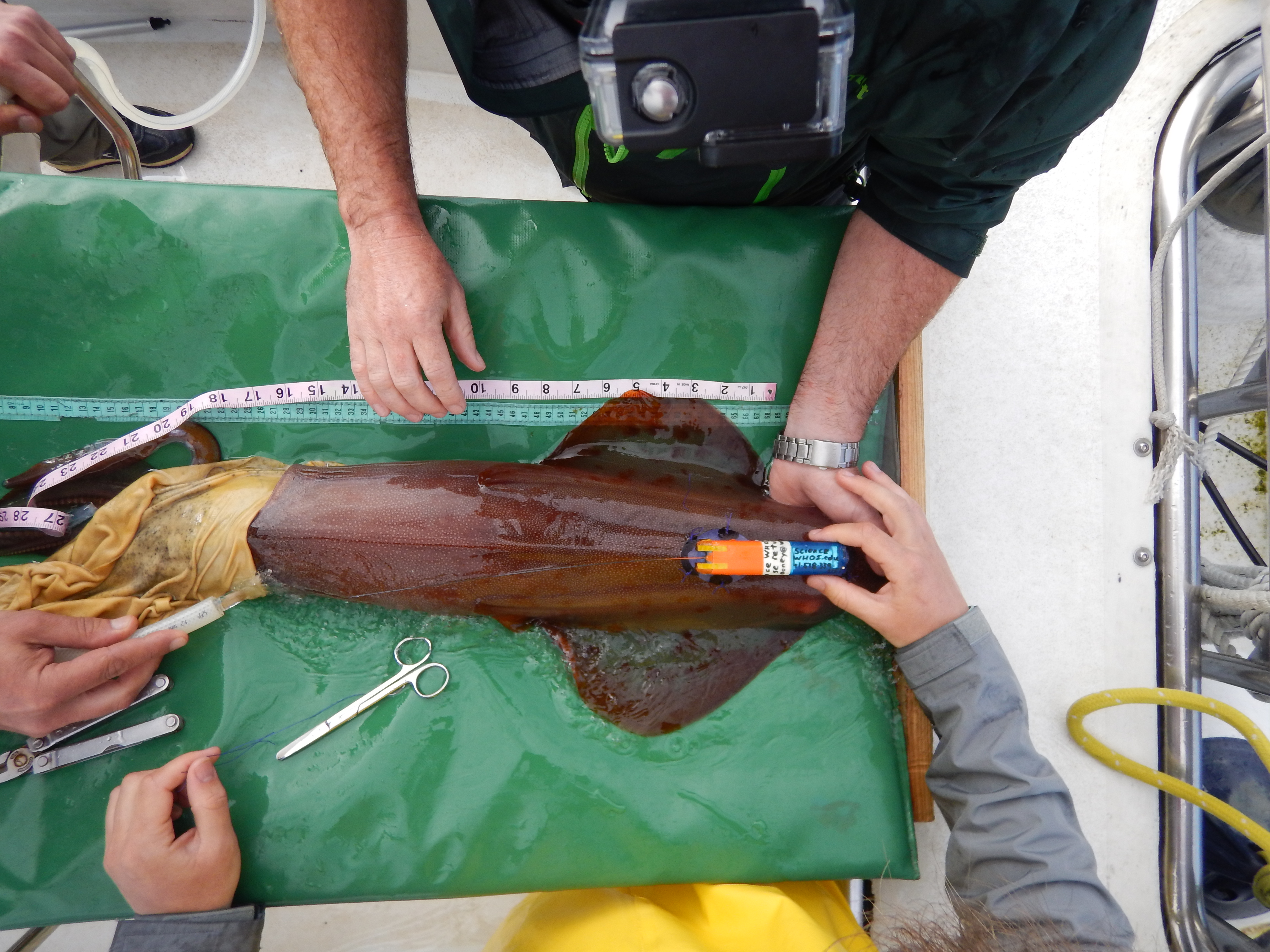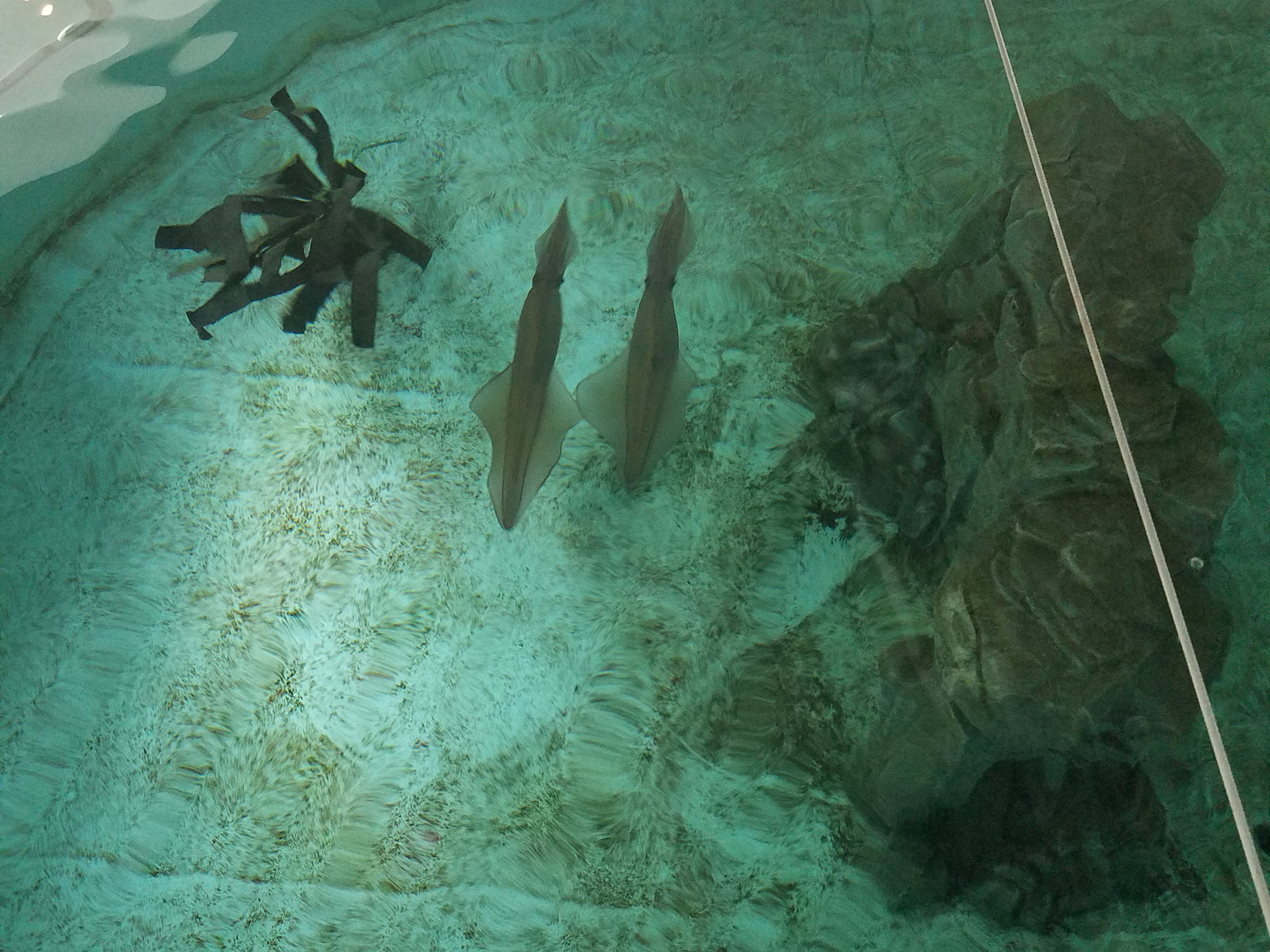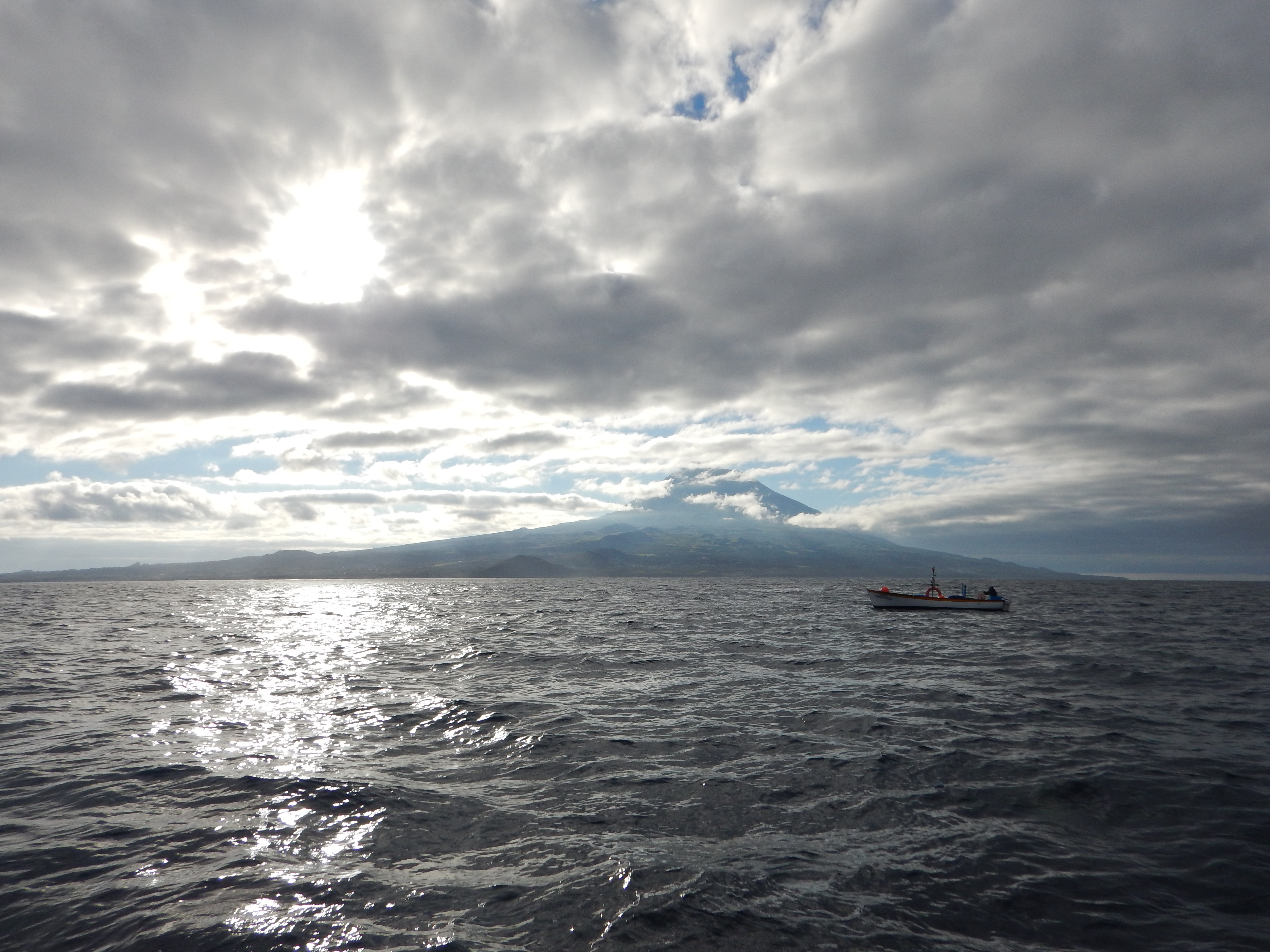ITAG – Environmental influences of squid behavior
Squids are ecologically important marine invertebrates that play a key role in many aquatic ecosystems and fisheries. Quantifying squid swimming and behavioural patterns provides important insight into the ecology of these key taxa. However, due in part to the inherent challenges of monitoring squid in their natural marine environment, fine-scale behavioural observations of these pelagic, soft-bodied animals are rare. Bio-logging tags provide an emerging way to remotely study squid behaviour in their natural environment.
Our lab, in collaboration with the University of Michigan and Monterey Bay Aquarium Research Institution, developed a novel, high-resolution bio-logging tag (ITAG) for soft-bodied invertebrates. We have begun tagging inshore long-fin squid (Doryteuthis pealeii) and veined squid (Loligo forbesi) in both controlled lab and field settings to quantify short-term behavioural patterns. We examine tag accelerometer, magnetometer and dive data to develop automated gait classification algorithms based on overall dynamic body acceleration. This combination of sensing, classification, and estimation will enable the quantification of organismal activity patterns to provide new biological information, such as identification of behavioural states, temporal patterns, habitat requirements, energy expenditure, and community interactions.


